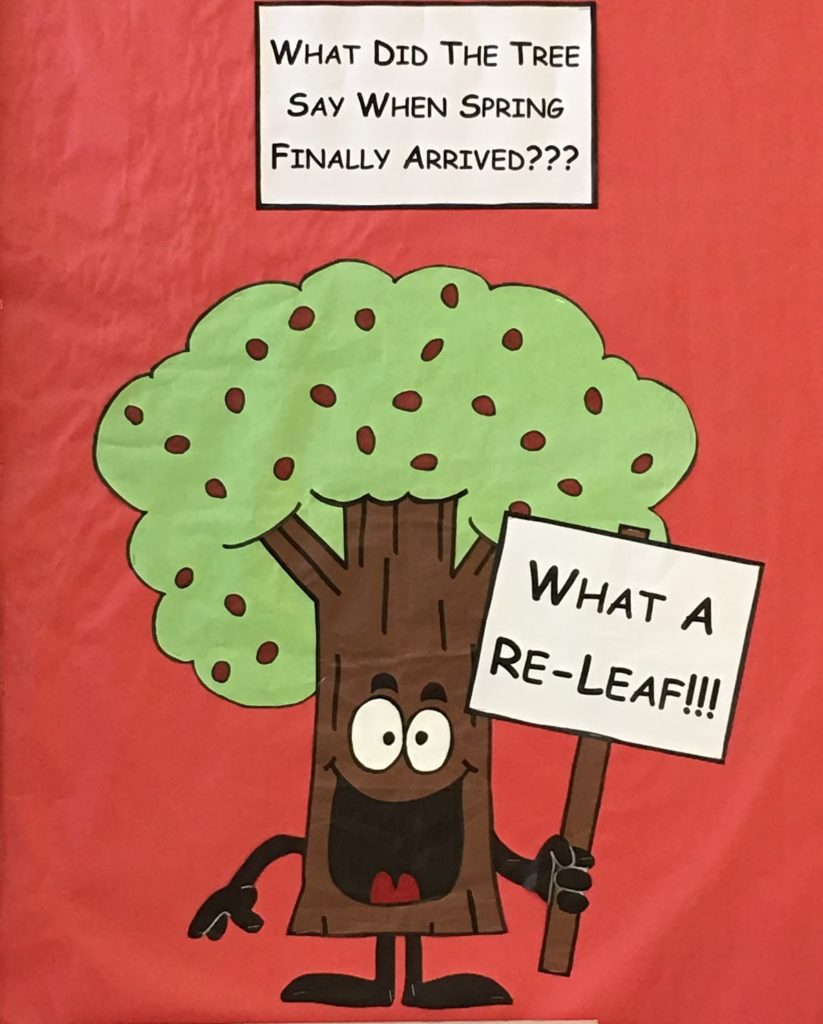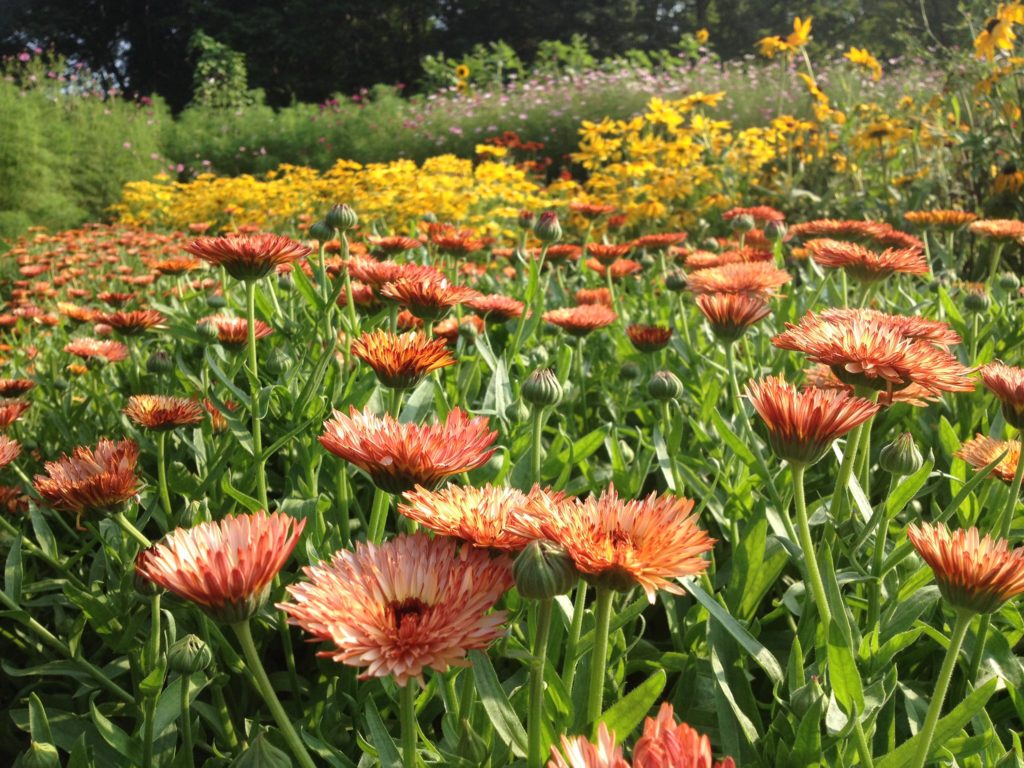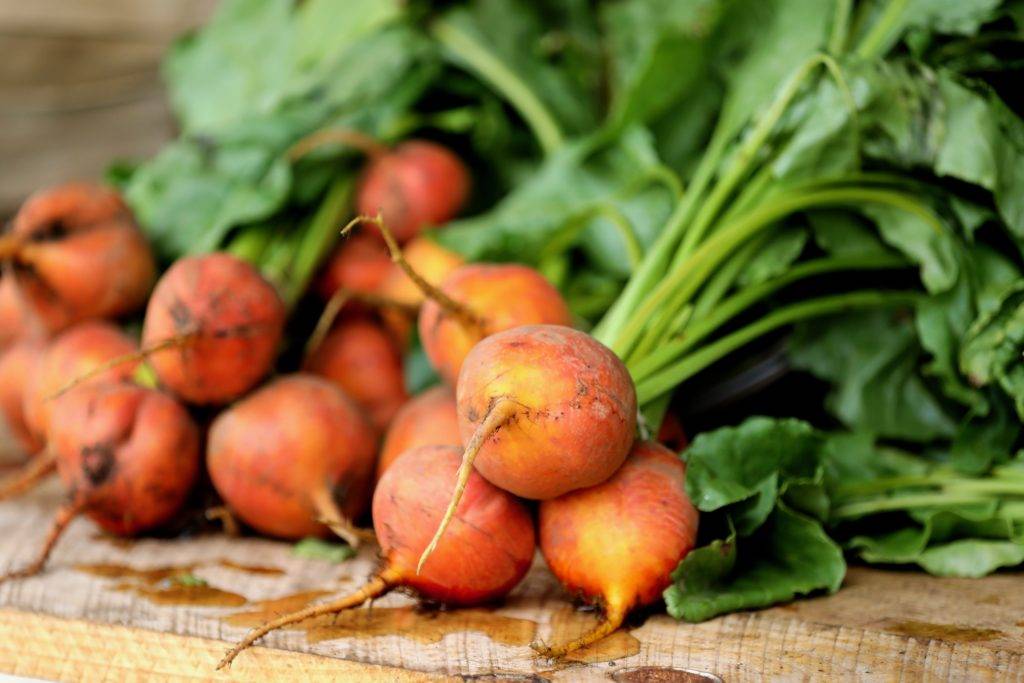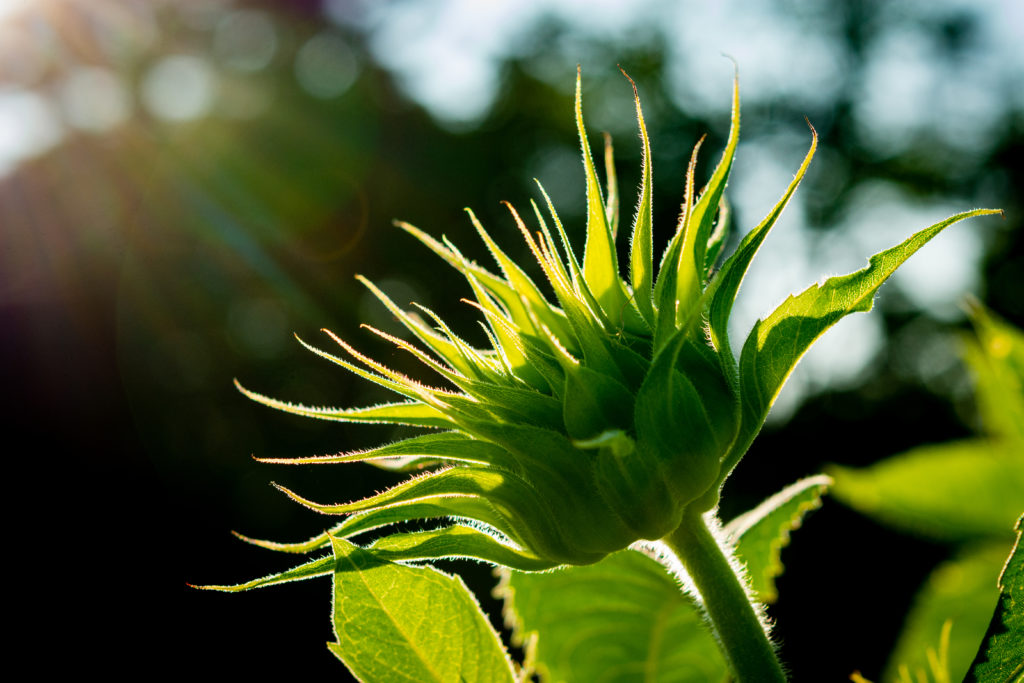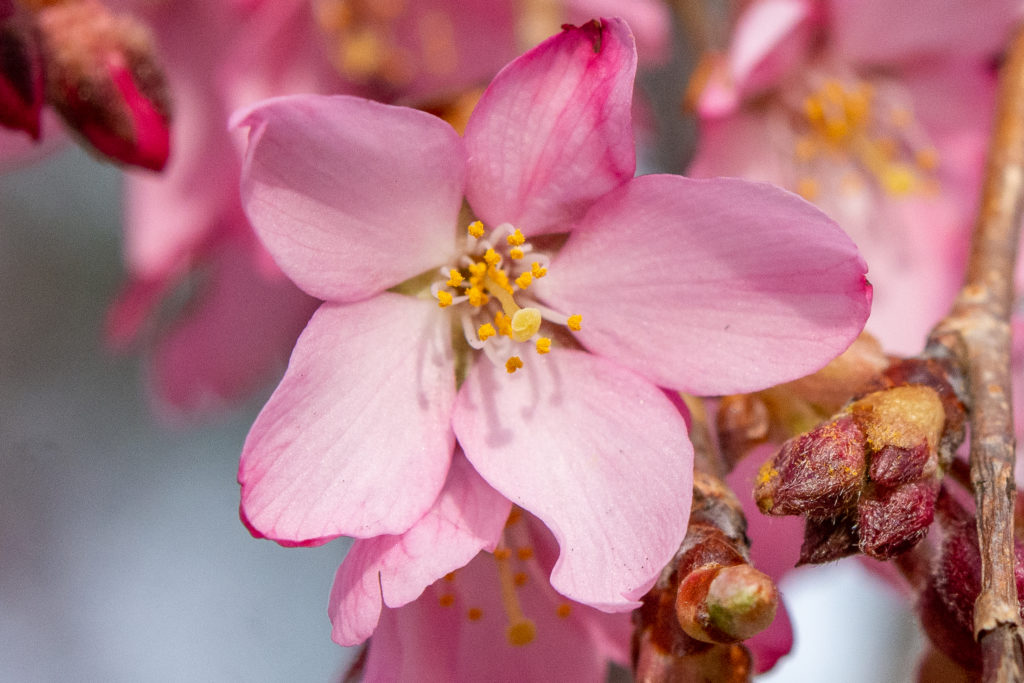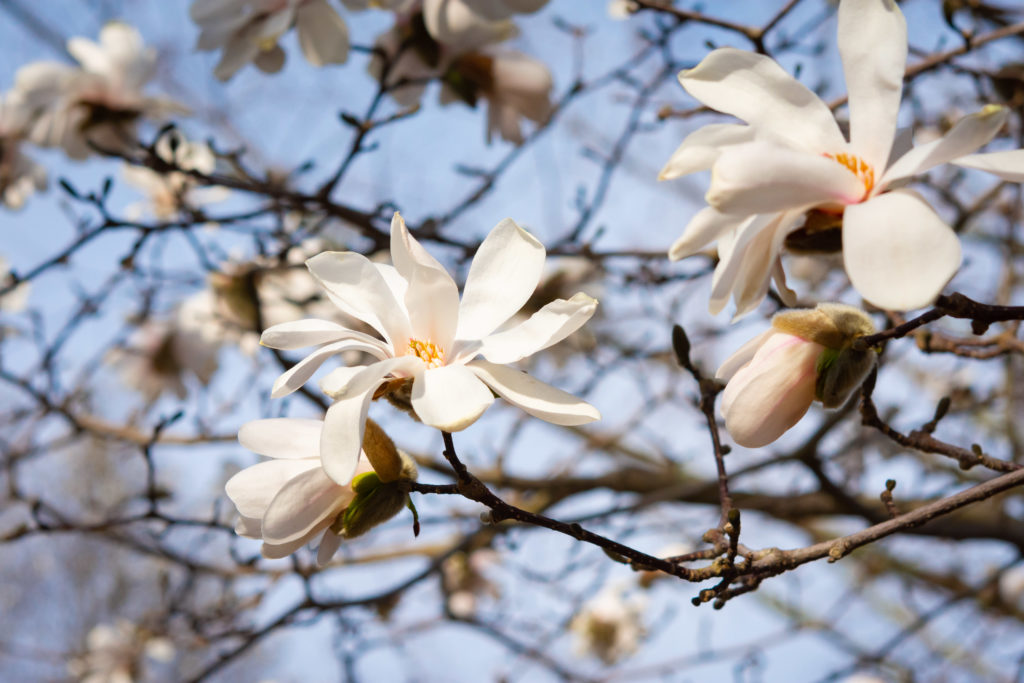
hor·ti·cul·ture
noun: horticulture
• the art or practice of garden cultivation and management.
This Arbor Day, plant a tree, vegetable, flower — whatever you can — to get your hands in the dirt! Gardening and caring for plants, whether for food, beauty, or a bit of both, is one of the most direct ways we can connect ourselves to the planet and the seasons. Anyone on the farm will tell you, growing plants is an experiment every time. Our successes give us joy, and food to share, while our failures humble us and teach us a little more about nature’s intricacies. No matter what the outcome, we wind up educated, fed, and a little more in-tune with the basic give-and-take of the natural world.
“Gardens and flowers have a way of bringing people together, drawing them from their homes.“
Clare ansberry
MARKET GARDENING
A market garden is the relatively small-scale production of fruits, vegetables and flowers as cash crops, frequently sold directly to consumers and restaurants. The diversity of crops grown on a small area of land, or sometimes in greenhouses, distinguishes it from other types of industrialized farming.
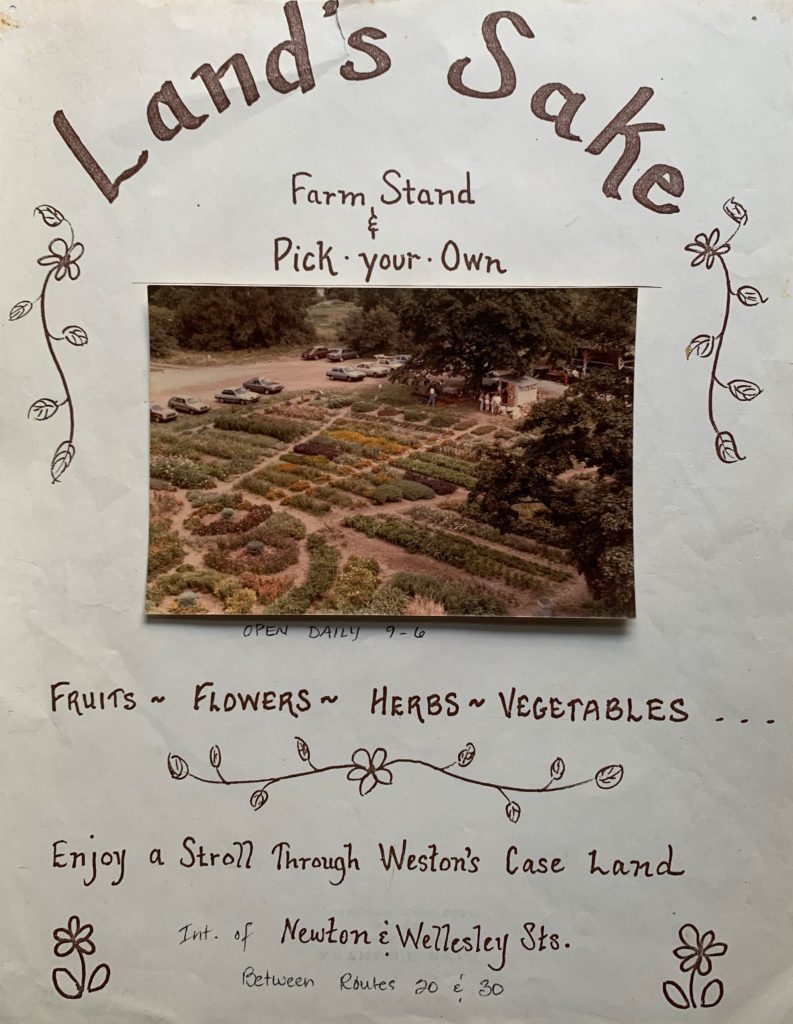
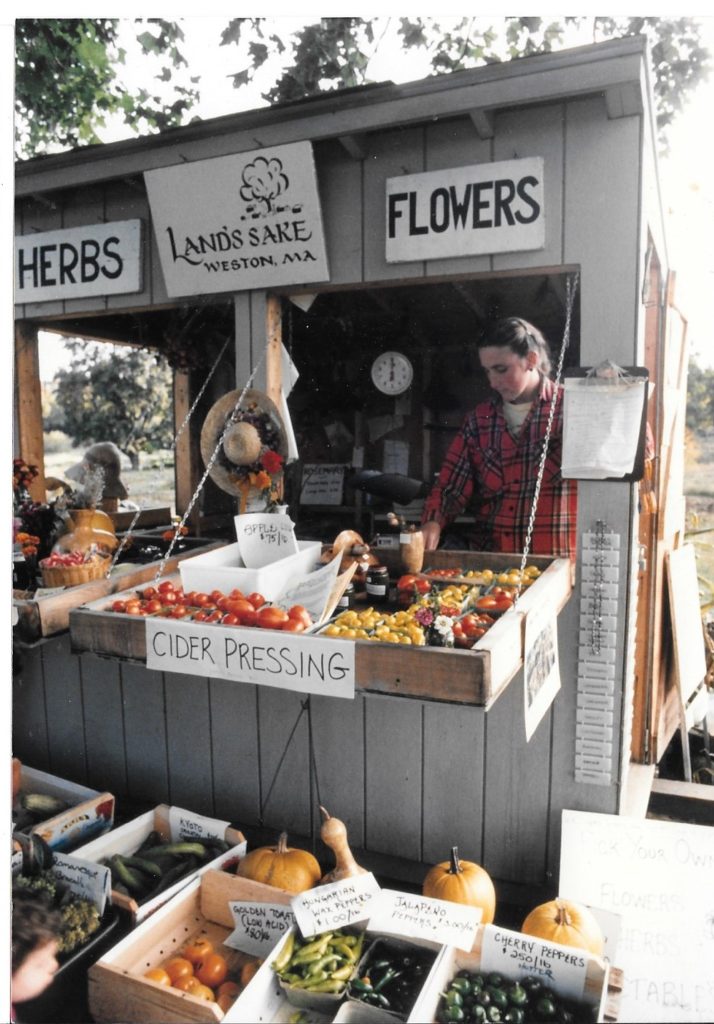
Faith Rand at the Farm Stand 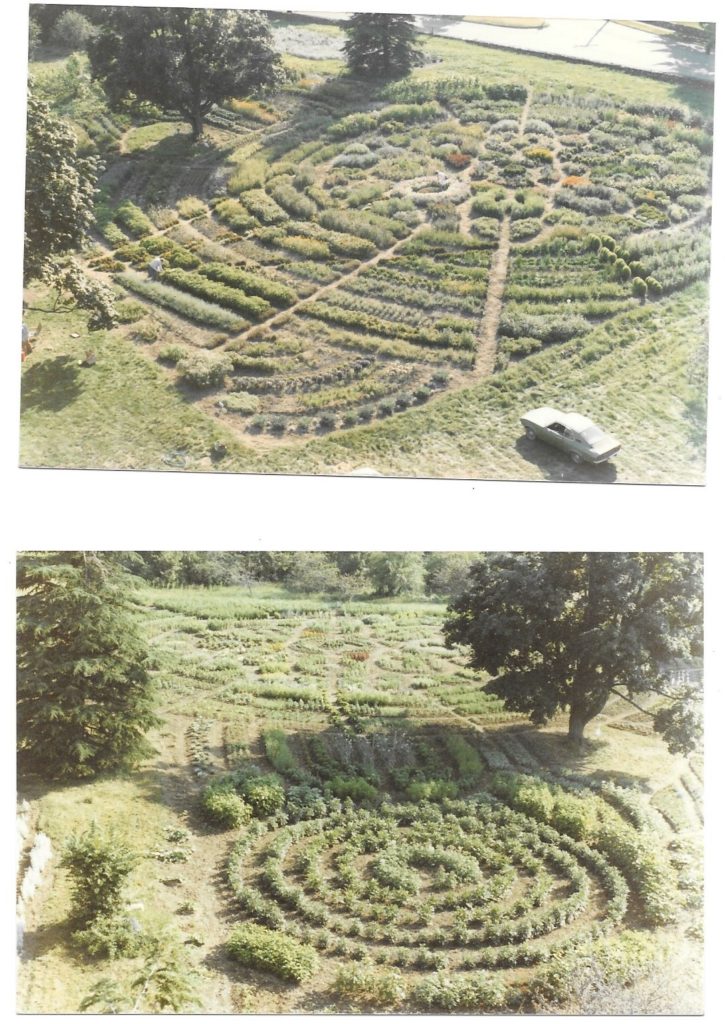
Treetop views of Flower Gardens. This was taken by Keith Shields climbing barefoot up a tree.
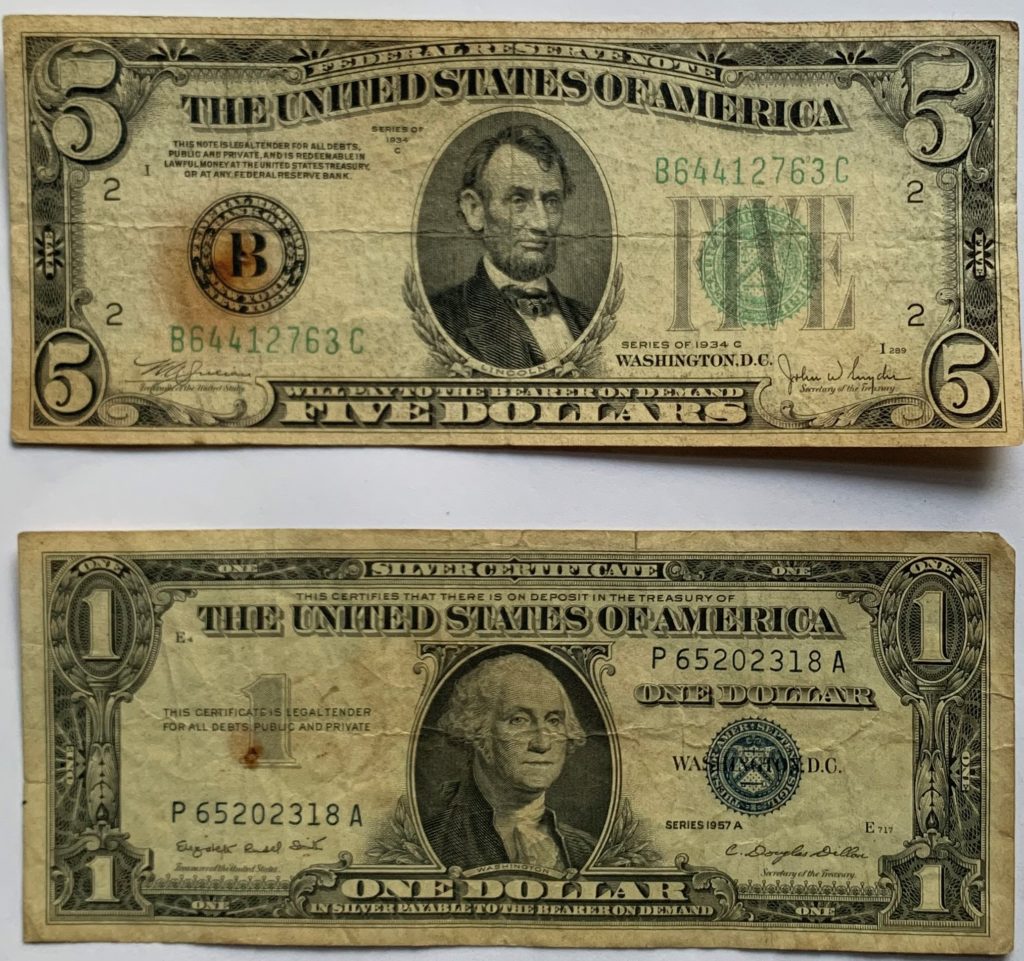
Flash back to the 1980’s when our Farm Stand first opened. The above photos show a decorative memoir, Faith Rand working the Farmstand, and an aerial view of the flower garden taken by Keith Shields (while cimbing barefoot up a tree!). To the left is a photo of the first $5 and $1 we made! We’ve saved many documents and photos these past 40 years, and there are just a few of our favorites.

Stop by the farm, anytime, to pick your own weeds! You are welcome to help us battle the dandelions, clover, and purslane. Have at it!
HOW THE FLOWER GARDEN SAVED LAND’S SAKE
Years ago, the Flower Garden located in front of the Farm Stand saved Land’s Sake from development. In 1984, when the farm stand opened for sales, we shared the land with another farmer. Our farm manager at the time, Rob Crockett, had planted — out of lucky coincidence — a bounteous flower garden near the road. He planted an array of varieties for arranging and drying that we still grow today, including celosia, strawflowers, zinnias, bachelor’s buttons, and a customer favorite, snapdragons! Simultaneously, the land was put up for sale and there was controversy all around town. Suddenly, the flower garden bloomed in bursts of color and became a symbol for what the land meant to Weston.
Thanks to Rob and his planting of the flowers, the land came back to life. Kids started running and playing in the fields, people started picking flowers and the land became visible to the community in a way it hadn’t been before. So, when the proposal for the land purchase was presented at a Town Meeting – $3.5 million for thirty-five acres, the biggest deal in Weston at the time – the residents of Weston adamantly & collectively agreed to save it.
Today, this land is central to the character of Weston, our home ground, and still provides beauty for all to enjoy!
— Story Referenced from Reclaiming the Commons, by Brian Donahue
FLOWER FACTS
They Support Pollinators
If you saw our Tuesday post, you know just how important pollinators are to our farm and to all of nature. Having a flower garden where there’s always something in bloom means our pollinators never go hungry! To see for yourself, come by the flower garden this season and check out the sights and sounds of a thriving pollinator population
They make people happy
Flowers are cheerful and beautiful, it’s just a fact. It may not surprise you to learn, then, that studies have found that looking at flowers trigger the release of dopamine, serotonin, and oxytocin, all three of the brain’s “happy chemicals”. Having flowers around also relieves stress and may even improve memory!
They’re Multipurpose
Did you know several of the flower varieties we grow at Land’s Sake have culinary and medicinal properties? Along with herbs, they can be sometimes considered a culinary delicacy, like squash blossoms!
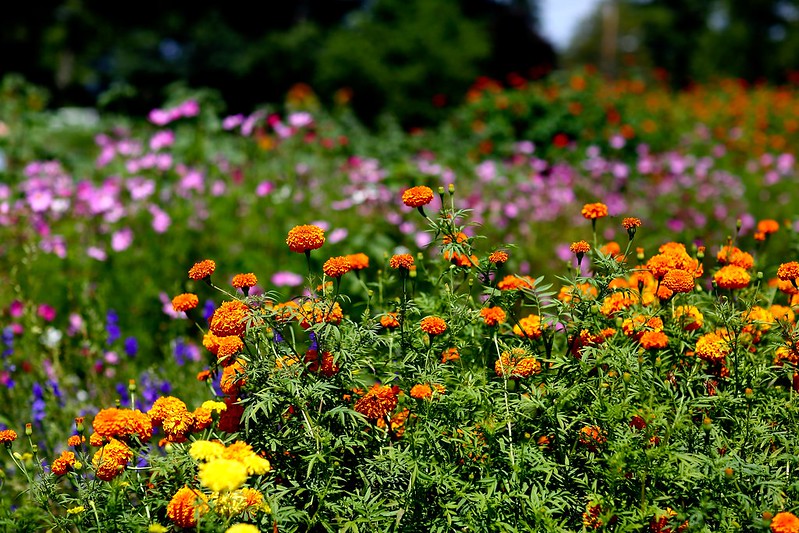
Edible Flowers
- Begonia
- Calendula
- Chamomile
- Echinacea
- Nasturtium
- Sunflowers
- Violas (Pansies)
- Marigold (Ornamental)
- Snapdragon (Ornamental)
- Zinnia (Ornamental)

Perennial Herbs
- Chives
- Garlic
- Lavender
- Lemon Balm
- Marjoram
- Mint
- Oregano
- Rosemary
- Sage
- Tarragon
- Thyme
- Savory
- Stevia
MAPLE SUGARING: A NEW ENGLAND TRADITION
Trees are givers of so much, but the tastiest is maple syrup!
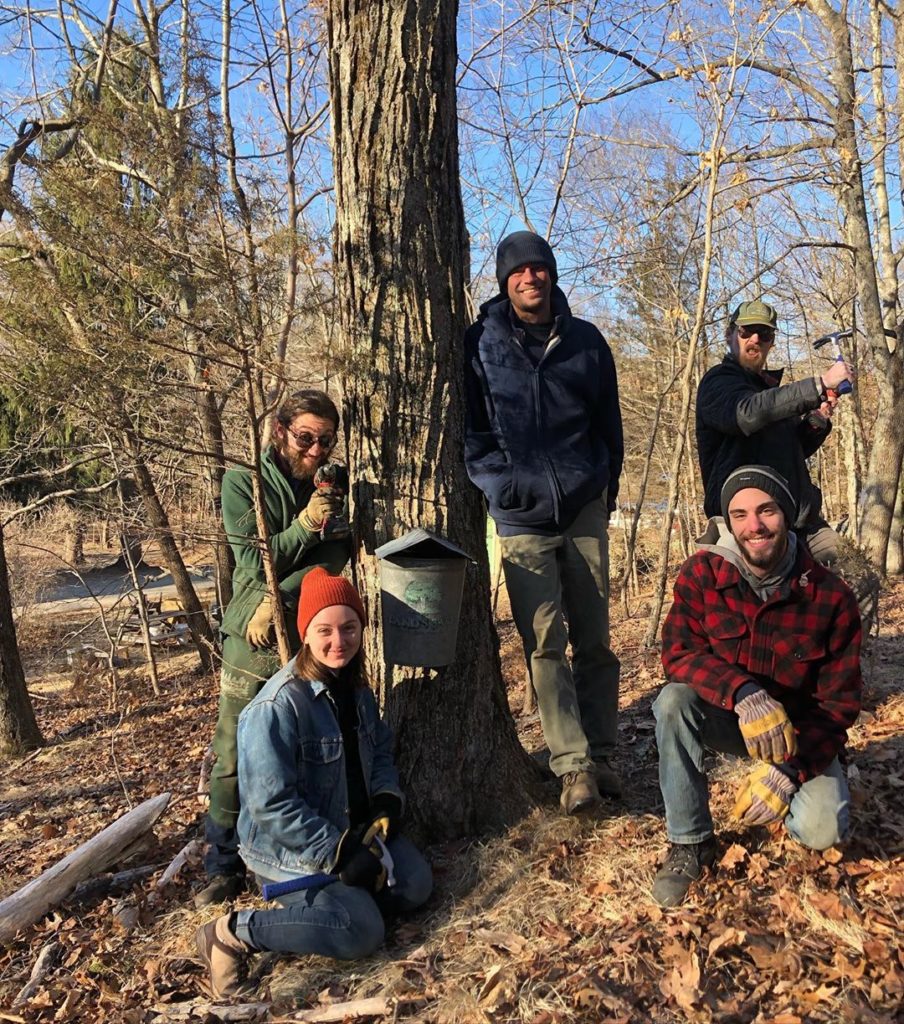
THE LAND’S SAKE TEAM TAPPING TREES
FEBRUARY, 2020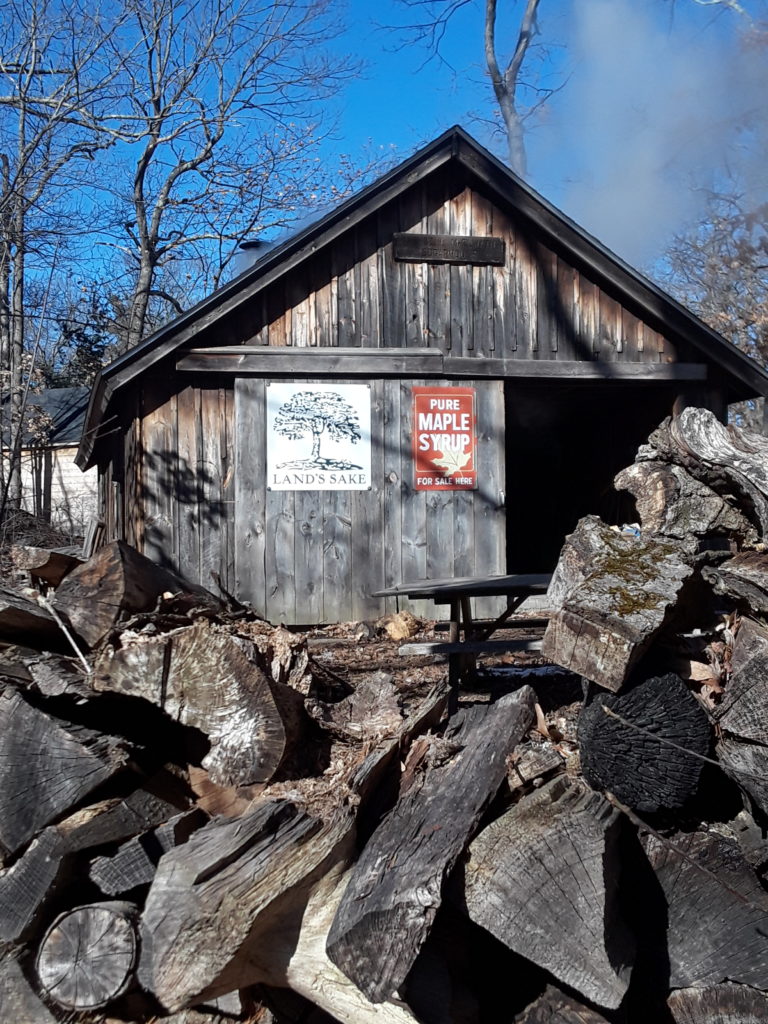
BILL McELWAIN SUGAR HOUSE, WESTON
THE HISTORY OF SUGARING OFF
The Sugar House we use to boil down our collected maple sap and teach about the process, was built in 1973, by you guessed it, Bill McEllwain. It’s even named after him, honoring the importance of this annual tradition. The collection buckets hung on the trees have become an eagerly awaited sign of spring in Weston. Today we still hang hundreds of buckets all over town, which is quite the lot to manage, but nothing compared to the 1,500 buckets handled back in 1980, with a much larger evaporator. Learn more about our Maple Syrup Production.
Sustainable TIP:
We utilize all of our own wood which we chop down for forest health and burn in the evaporator to boil down the sap….making our syrup from Weston’s trees in more ways than one!
Craving Maple Syrup?
You can purchase a bottle of our locally made Land’s Sake Syrup! Sign up here and we will contact you with more details.
FORESTRY

Many environmentalists have disagreed on the proper ways to care for & manage forests, so how are New Englanders to take effective responsibility for living in this part of the world? By taking another look at ecological history, we may be able to get a better sense of how today’s forest came to be and of the possibilities of sustainable human interaction with that forest. Here at Land’s Sake we spend a lot of time in the woods and make use of what we find in many ways, from syrup to firewood, and creating natural habitats for local wildlife by managing forest health.
Each year we harvest up to 40 cords of wood from Weston’s conservation land and allow it to naturally season over the spring and summer. Learn more about our Forestry.
FUN FACT: A Cord of Wood from Land’s Sake in 1980, was $70.
Take a Hike! Check out Weston’s Forests & Trails today
“Weston’s Forests & Trails Association was formed in 1955 to protect and enhance Weston’s treasured open space resources for everyone’s enjoyment. Recently, WFTA has seen an increase in usage since the stay-at-home order. We are happy to see more and more individuals, families, and their dogs, getting outside, exploring and enjoying the more than 100 miles of trails throughout Weston.
Be sure to check out the WFTA Facebook page where we have regular pictures posted asking “Where in the WFTA am I?” or let us know if you find a blocked trail. Reach out to learn more about WFTA membership and supporting the ongoing work of the more than 2000 acres we protect.”
–Gail Palmer, Trustee/Vice President, WFTA
HISTORY: ARNOLD ARBORETUM & LAND’S SAKE
We can’t help but feel a strong connection to trees. They’re on the farmland, lining the trails, in our logo… they are everywhere! Have you ever wondered why we have so many tree varieties on our farmland? Many years ago, the Arnold Arboretum owned this land and planted all sorts of varieties of trees sprinkled across the property, and added to the beautiful ones already planted by the Case Family. The Arboretum was doing educational research planting new species of trees and seeing if they would grow in this climate and cataloging findings. We are now able to enjoy this eclectic variety of trees all over our land, especially in the spring – during the celebration of Earth Day – when they are starting to bloom!
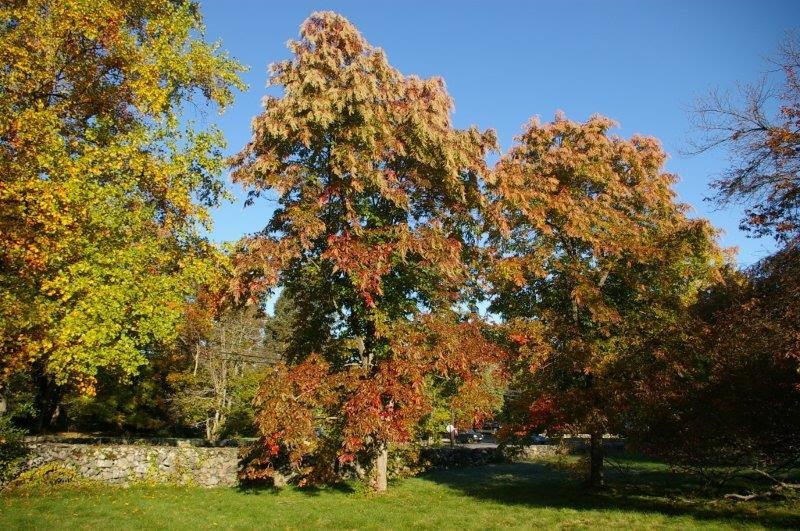
GRAND OLD TULIPS 
MAGNOLIA 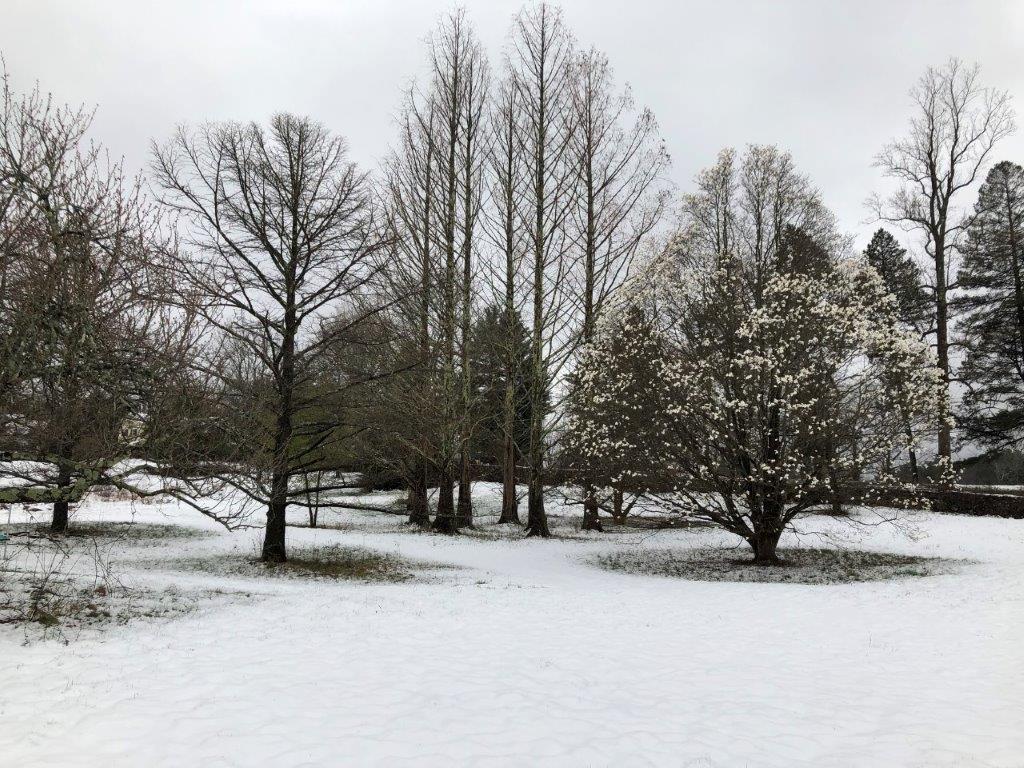
GOLDEN LARCH, DAWN REDWOODS, MAGNOLIA
The Grand Old Tulip Trees along the street were planted by the Cases after the famous hurricane of 1938. There are now only 4 Oldies left, out of perhaps 10 or 12 originally. They bloom with yellow tulip-like flowers in June, and have very strong upright trunks. Two years ago, the Weston Tree Advisory Group (better known as “TAG”) planted 8 new Tulip Trees inside the wall, on the edge of Land’s Sake- they are doing well so far- fingers crossed!
This evenly-shaped Magnolia was grown and planted by the Arnold Arboretum in the 1960’s to test for hardiness. Weston is generally 10 degrees cooler than the Arnold Arboretum in Jamaica Plain. Its white flowers, when in bloom, can be smelt from nearby, and the visual is breathtaking.
A late snowfall (April 2020) contrasts with the silhouettes of these Arboretum trees: Golden Larch on the left, 6 towering Dawn Redwoods which the Arboretum propagated from seed brought back from China, in center, and stunning Magnolia on right.
THE MAGIC TREE
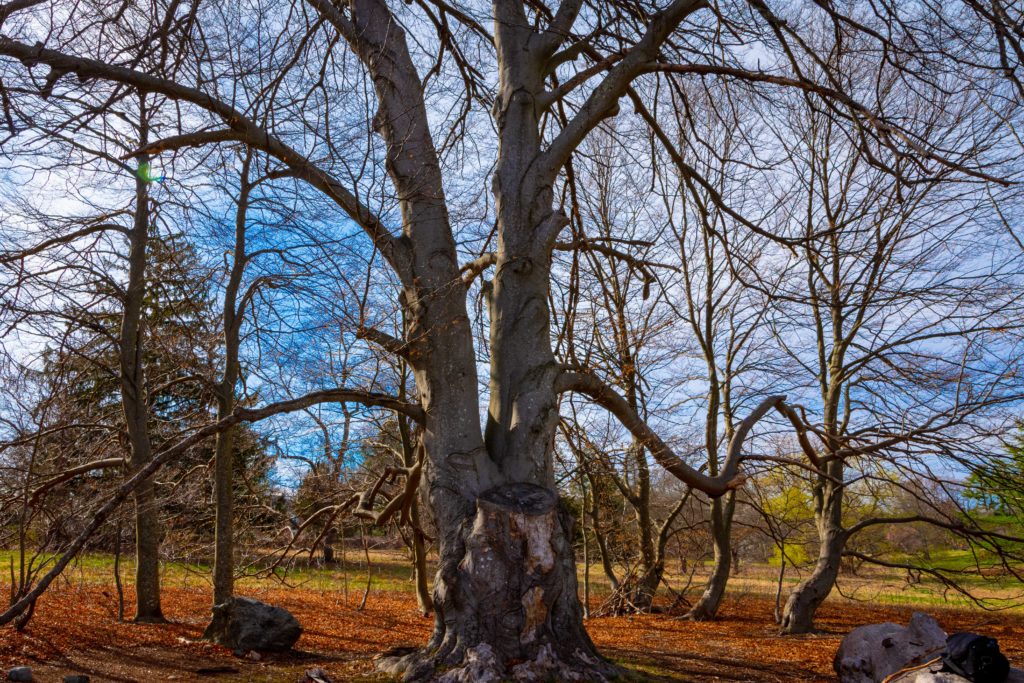
The Magic Tree is a special spot for anyone lucky enough to visit Land’s Sake and stand in its glorious presence. This local favorite – a spectacular weeping cut-leaf European beech – was planted up on the Newton Street hill in the 1890’s by Mr. Case himself. Its roots and branches have grown in a special way, creating a circular canopy around the massive center trunk. This “magical” space has become a sanctuary for the kids, where they play in the summer and shade from the sun, and so beautiful some residents have made their wedding vows! When you visit, you will notice that a branch is missing. Unfortunately, one of its 3 center trunk branches was destroyed in a storm a couple of years ago. So, we called local wood artisan, Matt Day, who hand carved beautiful kitchen utensils from the branch which we sold at the farm stand! ( They sold out immediately!)
EDUCATIONAL ACTIVITIES
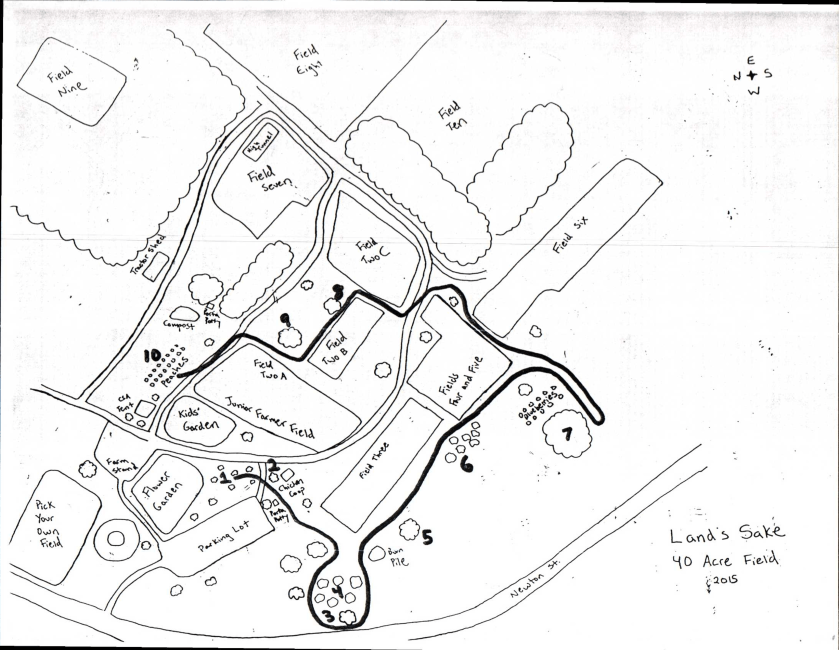
WALK AND SEEK
While at the farm, use this map and this information sheet and go on a tree themed scavenger hunt! Some trees still even have the original Arnold Arboretum tags on them, noting the species variety.
BUILD A FAIRY GARDEN
Make your garden extra special, or find a tree in your yard — a fairy garden can live anywhere! First, decide on the container you’ll use, then sketch out the garden layout, finally get creative with items you can find outside and fancy it up with some fun accessories. Voila! You have your very own fairy garden. The Spruce Crafts website has some fun suggestions!
Be sure to take a photo and share with our education department at education@landssake.org.

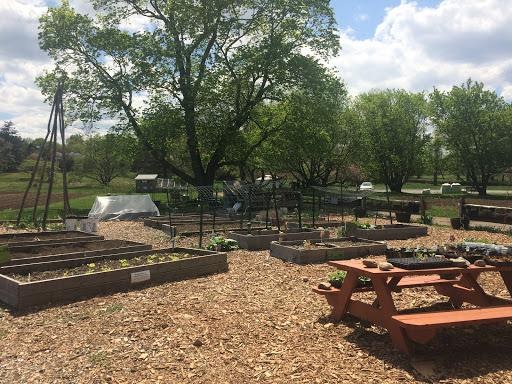
BUILD A GARDEN
The Education Garden at Land’s Sake is a sizable collection of vegetables, herbs, flowers & activities for all. Whether you can build a field of flowers, plot of veggies, or a windowsill herb garden, you are practicing horticulture! Shout out to Green City Growers for their WONDERFUL garden planning tips. We use their tips of the trade in particular when planning out our Education Garden and Junior Farmer Field with kids in the Land’s Sake education programs.
If you’re planting your own veggie or flower garden at home, we can help!
We have some extra starter plants from our greenhouse that we can share with you, these include, tomato plants, pepper seedlings, & herb startersContact education@landssake.org for more info!
PUNS OF THE DAY

